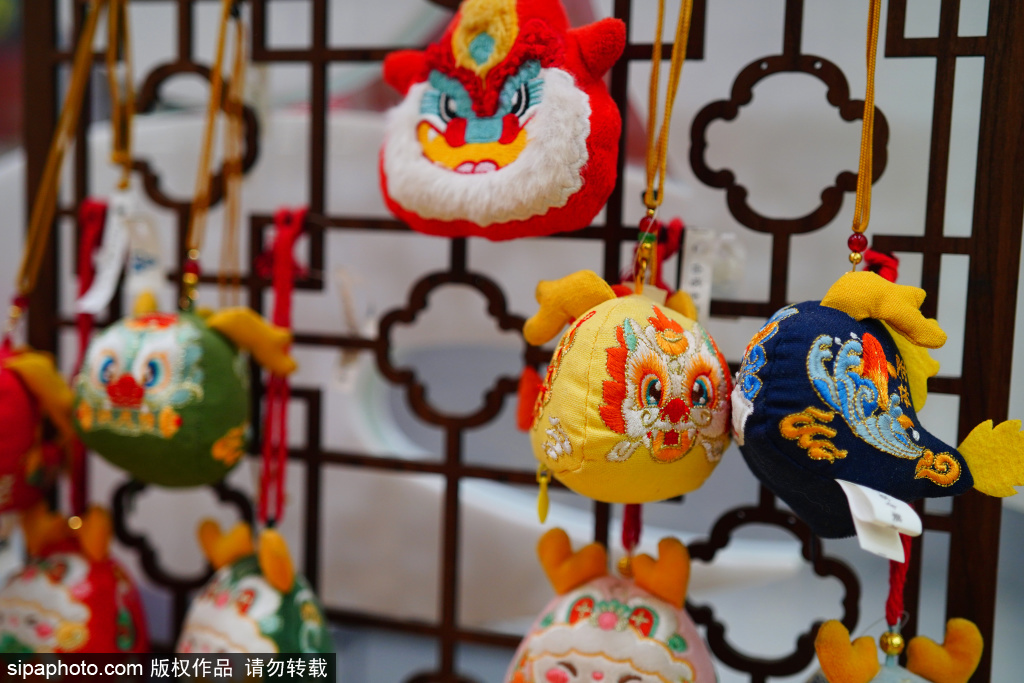Beijing, a city with a rich cultural heritage, is renowned for its profound connection to traditional Chinese medicine (TCM), which forms an integral part of its cultural landscape. The long-standing TCM pharmacies are among the most vivid and direct embodiments of this heritage. These time-honored pharmacies play a crucial role in preserving and promoting TCM and its intangible cultural heritage. While steadfastly upholding traditional practices, they continuously innovate and expand, allowing more people to gain a deeper understanding of TCM culture and experience the enchanting allure of traditional Chinese culture.
Tong Ren Tang
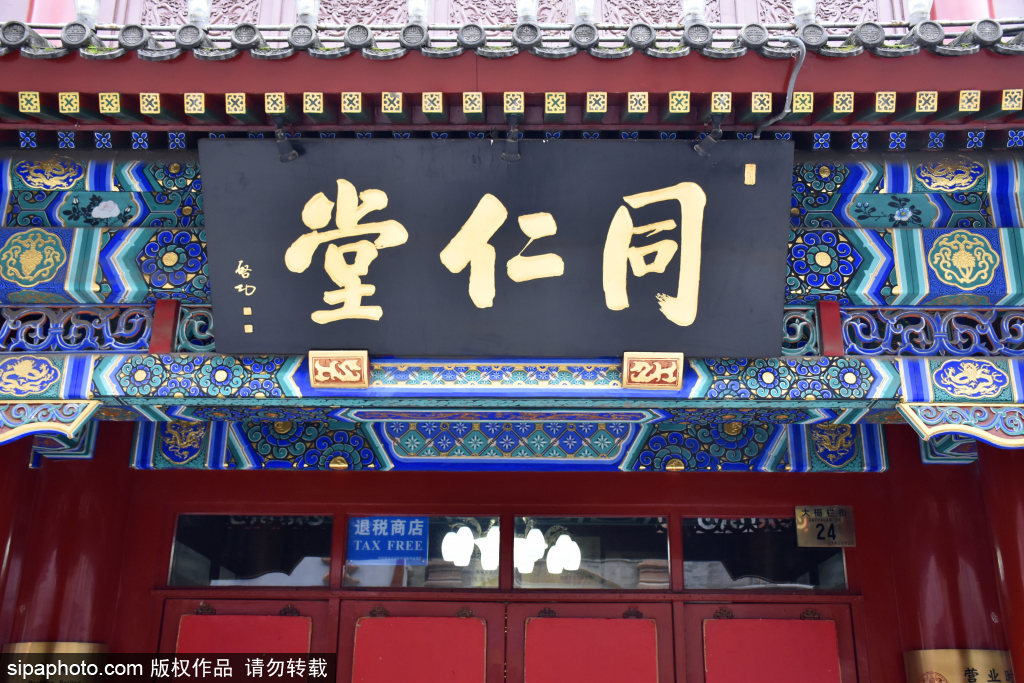
Tong Ren Tang (TRT) was founded in 1669. It served eight Qing emperors for 188 years since it was designated to provide traditional Chinese medicine to the imperial family in 1723. The founding of the People's Republic of China in 1949 gave a new life to weather-beaten TRT.In 1992, Beijing TRT Group was established, and became a wholly state-owned company in 2001. It has gradually established a modern corporate system.
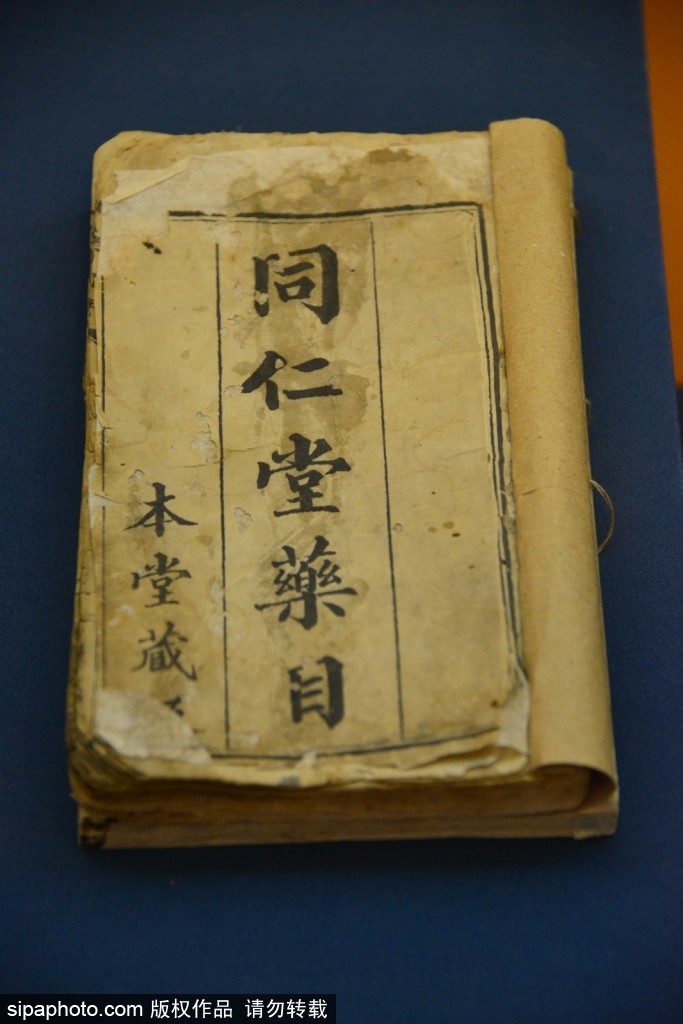
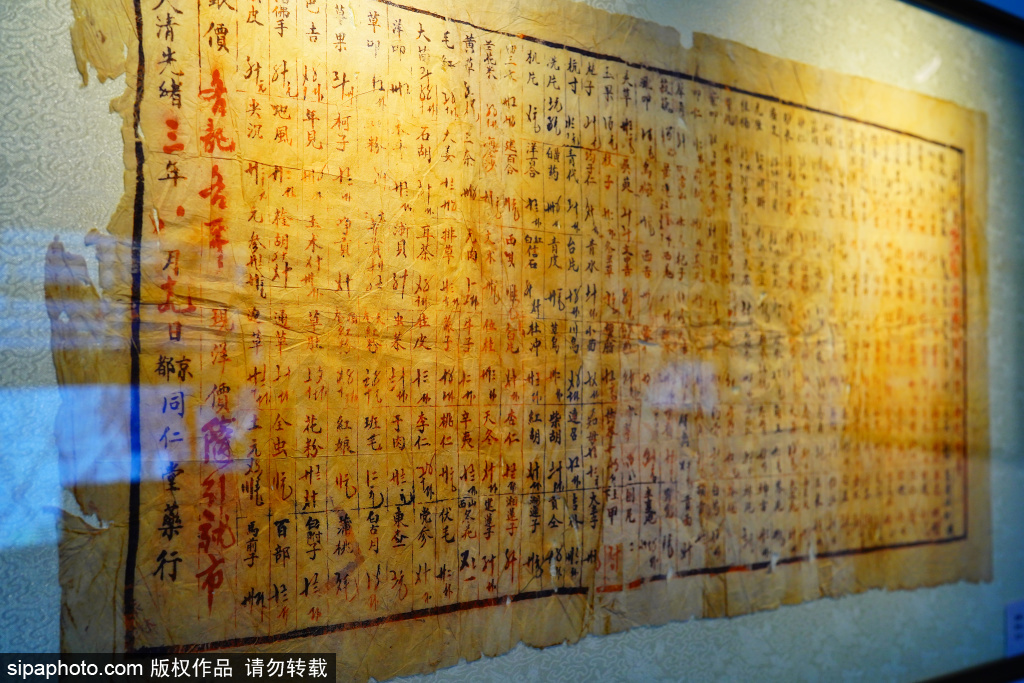
As one of the first China Time-honored Brands, Beijing TRT Group goes along a growth path that coordinates both business growth and cultural development. As a state-owned company, the group fulfills all its political, economic, social and cultural responsibilities. It plays a unique role in advancing the TCM industry and carrying on the TCM culture.
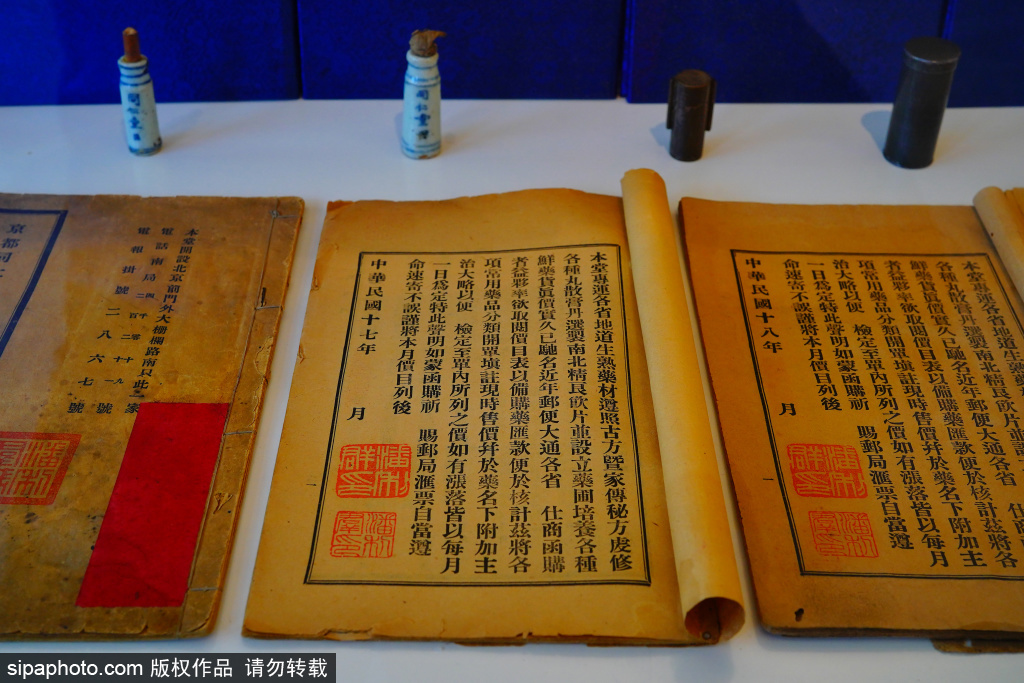
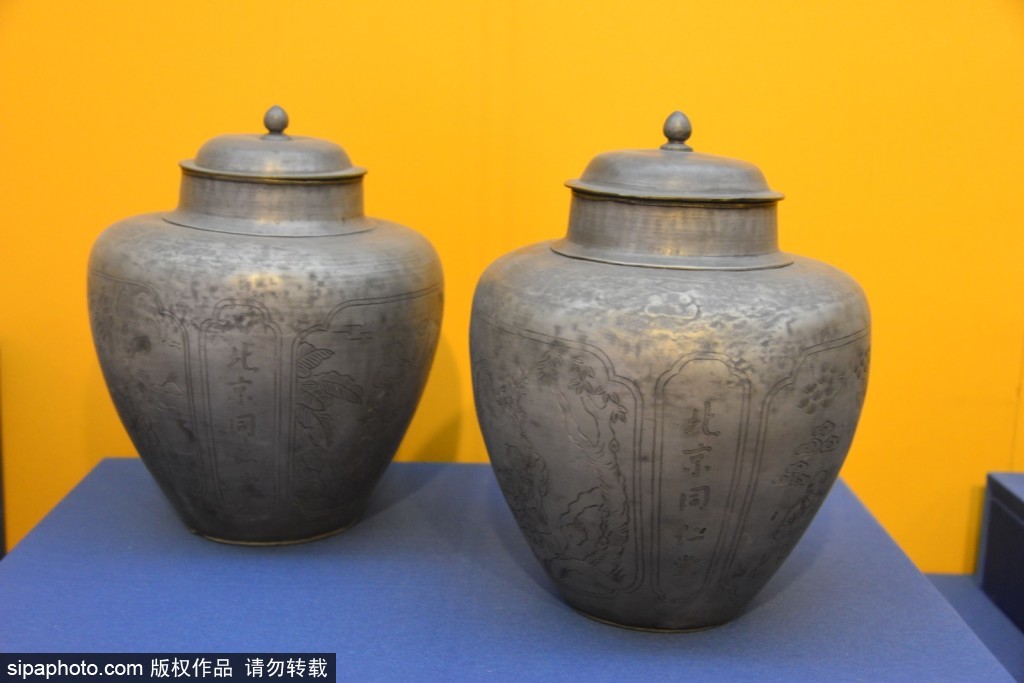
Intangible cultural heritage is deeply embedded in Tong Ren Tang's legacy. The company preserves eight significant intangible cultural heritage (ICH) projects, which include:
Chinese medicine culture of Tong Ren Tang
Production techniques of Angong Niuhuang Pills
Chinese medicine culture of Tong Ren Tang (traditional Chinese medicine processing technology)
Tong Ren Tang's traditional manual manufacturing techniques for honeyed pills
Tong Ren Tang's traditional manual manufacturing techniques for water-based pills
Traditional production techniques of Tong Ren Tang Xihuang Pills
Traditional production techniques of Tong Ren Tang Ejiao
Traditional production techniques of Tong Ren Niuhuang Qingxin Pills
These cultural practices and techniques represent the collective wisdom of generations of Tong Ren Tang practitioners and are a shared treasure and pride of the Chinese nation.
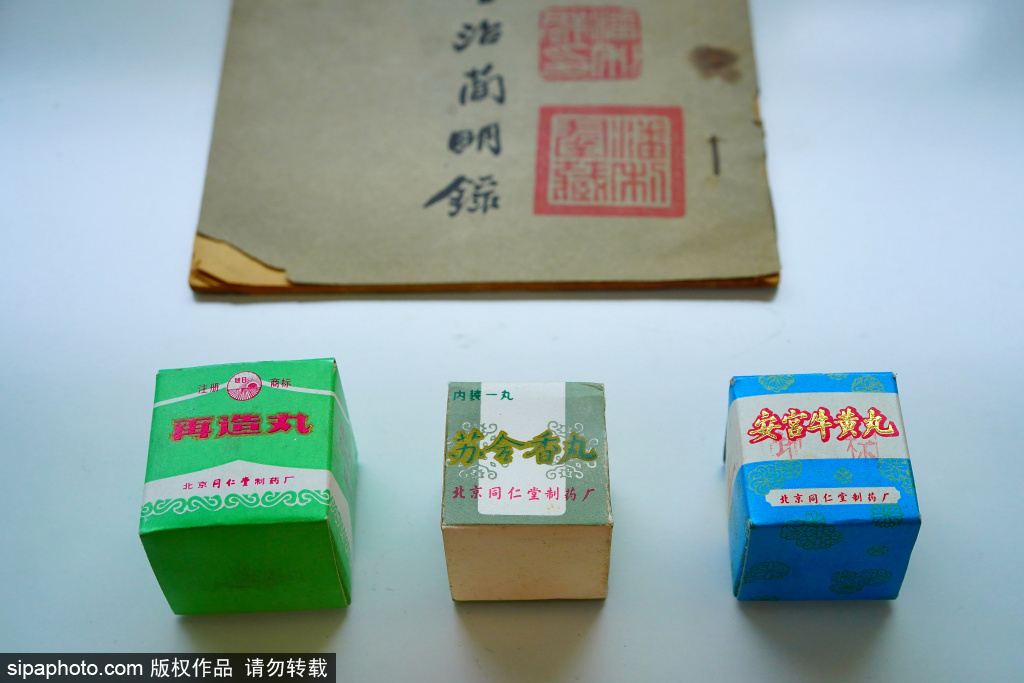
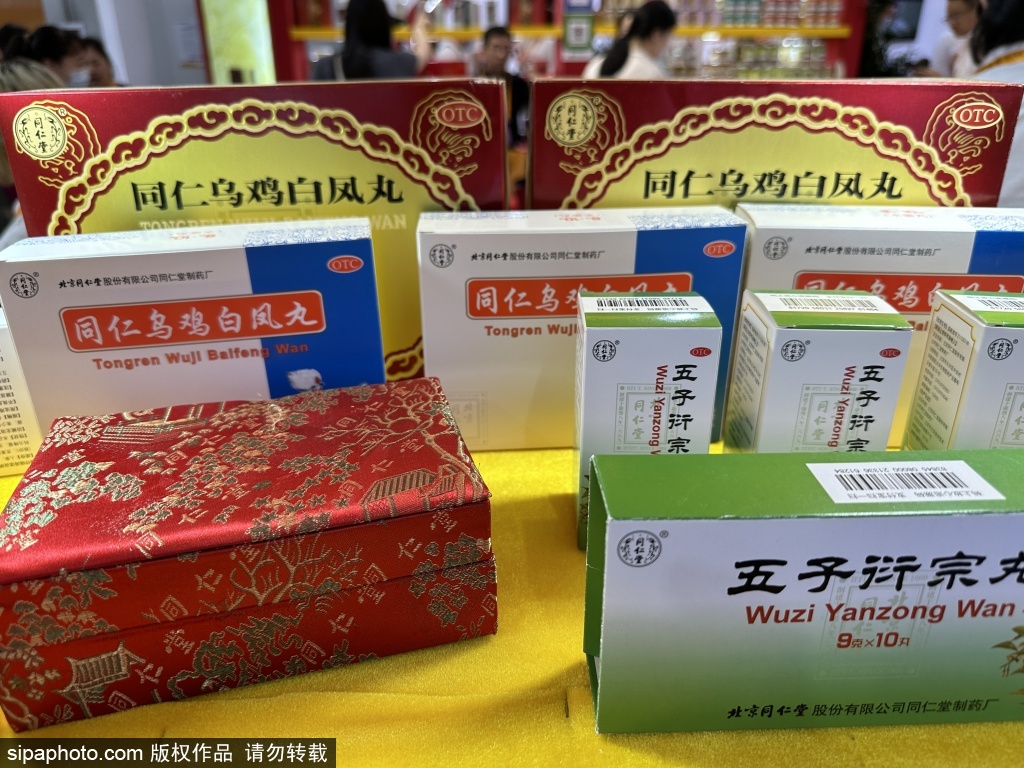
The Chinese medicine culture of Tong Ren Tang integrates the essence of traditional Chinese medicine with the medicine standards for Chinese imperial family. Through three hundred years of inheritance and innovation, Tong Ren Tang combines Chinese medical practices and medicines, tradition and modernity as well as domestic and overseas development, forming a unique integration of traditional techniques, preparation methods, cultures of benevolence and quality, business philosophy, brand image and team spirit.
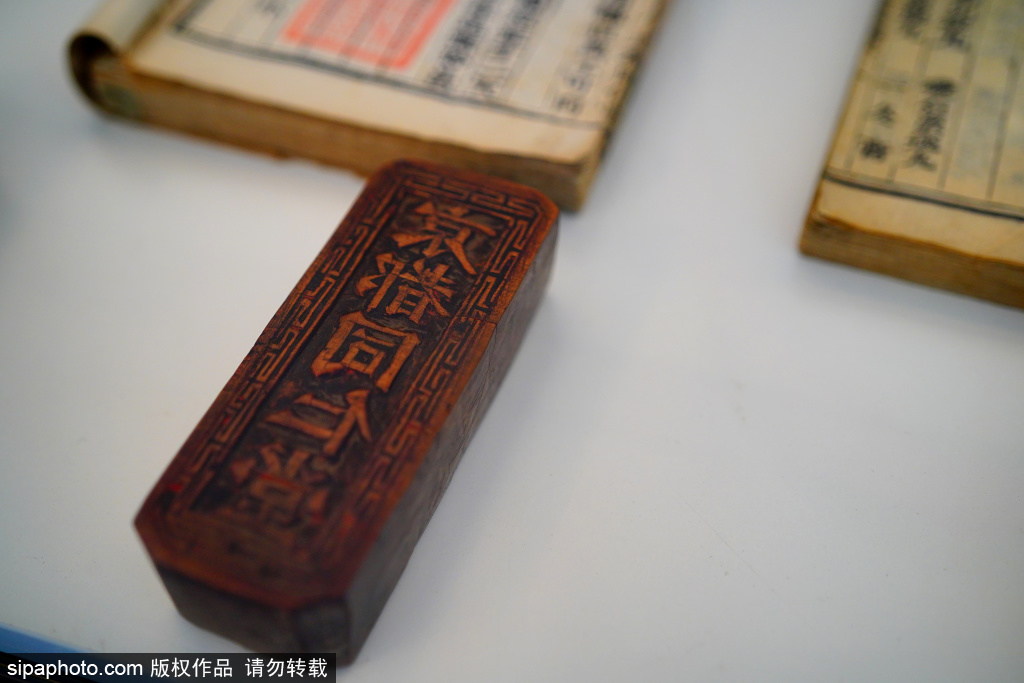
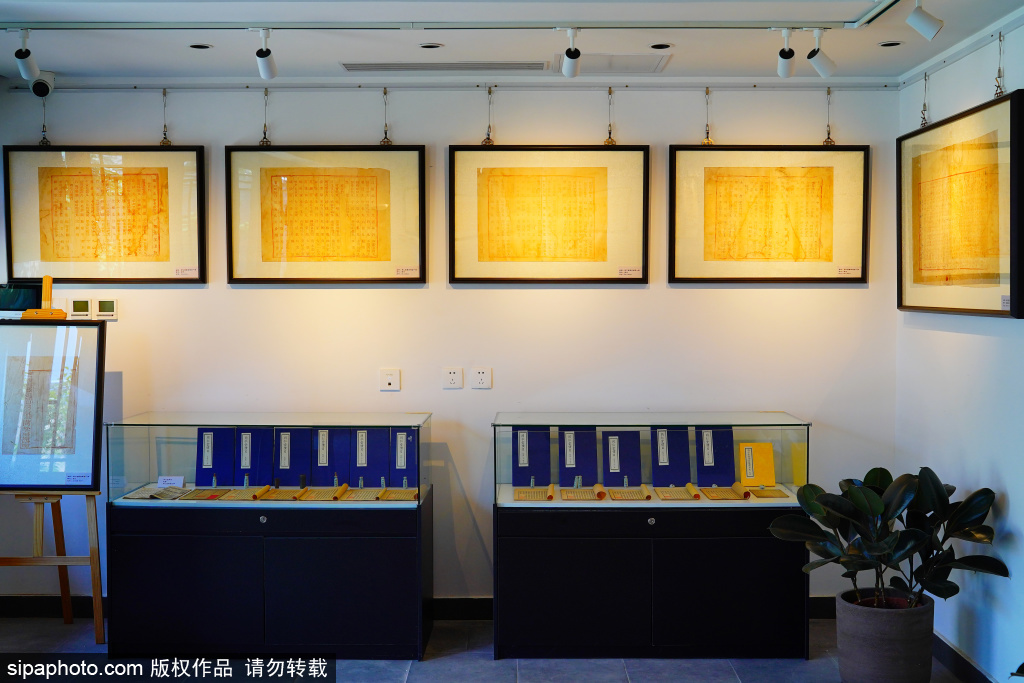
TRT started its business with the belief to "promote people's health with noble morality and kindness". "Serving the people's health soul and heart" is TRT's motto. It follows the codes of conduct from the ancient times, such as "although patients do not see the process of making TCM, we should always do it earnestly","no manpower shall be spared, no matter how complicated the procedures of production are", "no material shall be reduced, no matter how much the cost is", "it is our hope that people will never get ill, even if that means we won't have any business." TRT is therefore known for its unique prescription, high-quality raw materials, great techniques and outstanding therapeutic effects" - contributing to its fame of quality and credibility.
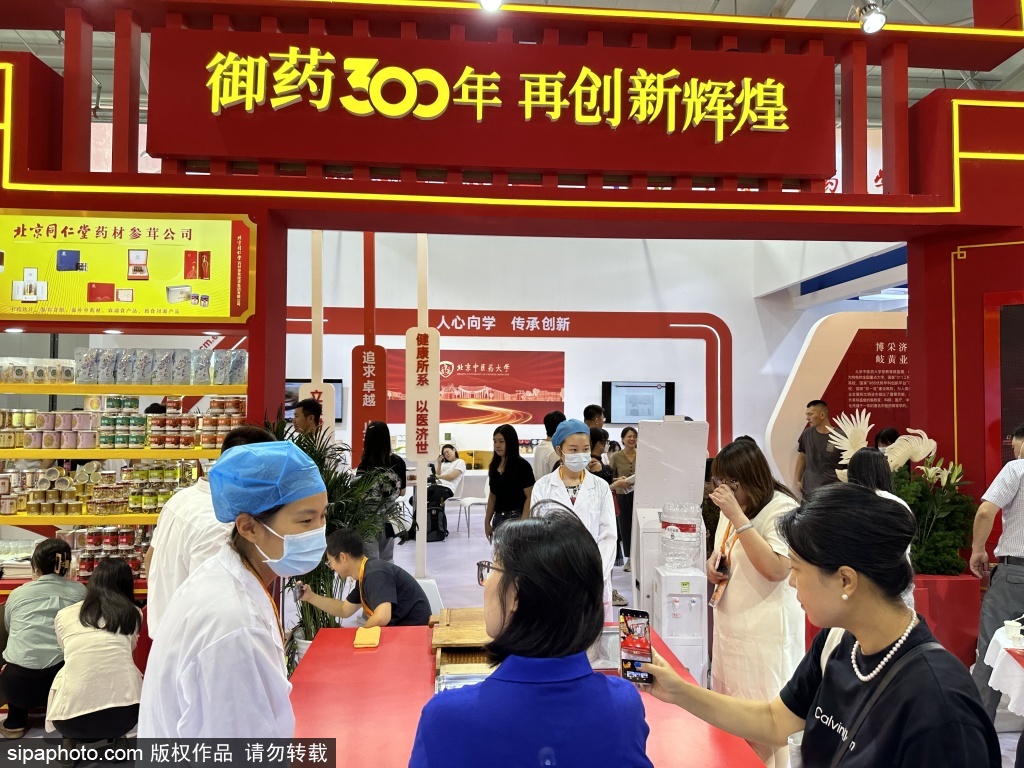
He Nian Tang
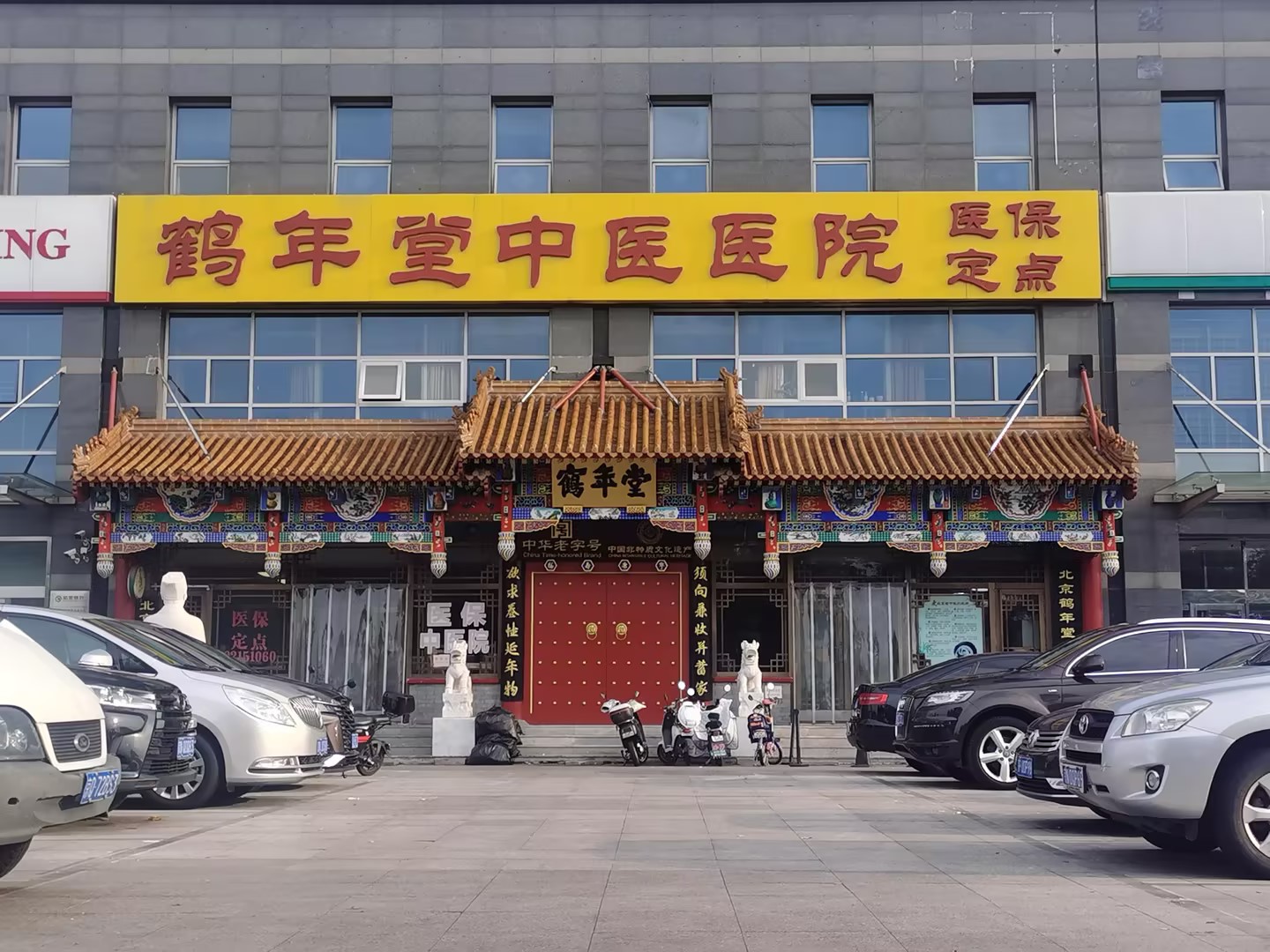
He Nian Tang, founded during the Yongle reign of the Ming Dynasty, is said to have been established by the famous Hui poet and Zhejiang pharmacist Ding Henian in the Niujie area of Beijing. Around the 4th year of the Jiajing reign (1525), the business was taken over by the Cao family and moved to the northern side of Caishikou Road. It is recognized as the oldest surviving brand in Beijing's pharmaceutical industry.
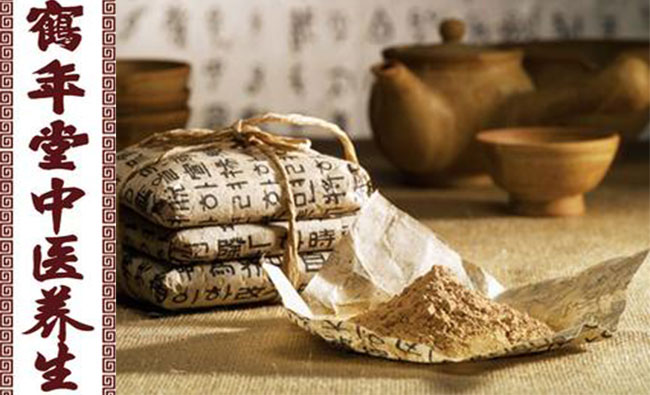
In the main hall of He Nian Tang, a plaque with the three large characters "鹤年堂" (He Nian Tang), written in black on a gold background, was inscribed by Ming Dynasty Prime Minister Yan Song. The plaque on the main entrance reading "西鹤年堂" (West He Nian Tang) was written by his son, Yan Shifan. Additionally, plaques with the inscriptions "调元气" (Regulate Vital Energy) and "养太和" (Nurture Harmony) were written by the famous Ming Dynasty national hero, Qi Jiguang. These historic plaques remain well-preserved to this day, showcasing its rich cultural heritage.
Since its founding, He Nian Tang has centered its philosophy on "Tiao Yuanqi" (regulate vital energy) and "Yang Taihe" (nurture harmony), expanding and promoting traditional health-preserving recipes, such as medicinal dishes, herbal wines, and teas passed down through generations. Today, the health products developed by He Nian Tang are widely loved and highly sought after by consumers. The current operator at He Nian Tang views "promoting the excellence of Chinese traditional medicine and health culture" as their mission. This mission not only underscores the value and significance of the brand's existence but also reflects the business wisdom and principles of a century-old national enterprise.
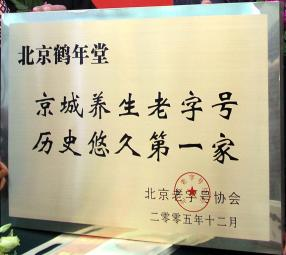
He Nian Tang, with its long history and profound accumulation of traditional Chinese medicine culture, was awarded the title of "Chinese Time-Honored Brand" by the Ministry of Domestic Trade in 1999. It is the most historically significant TCM time-honored enterprise today. In 2008, He Nian Tang's "Traditional Chinese Medicine Health Preservation Culture" was included in the national intangible cultural heritage list by the Ministry of Culture, becoming the only TCM health preservation project under legislative protection in the country.
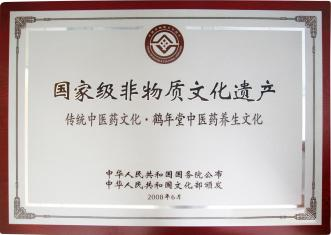
He Nian Tang focuses on promoting the traditional Chinese medicine herbal decoction processing techniques and exploring Chinese medicine health preservation culture. It has established a Chinese herbal medicine processing and manufacturing facility and founded He Nian Tang Chinese Medicine Hospital to advance TCM health preservation. By integrating tradition with innovation, He Nian Tang has developed a unique approach, offering the most personalized and customized health guidance services and leading the way in the health and wellness era.
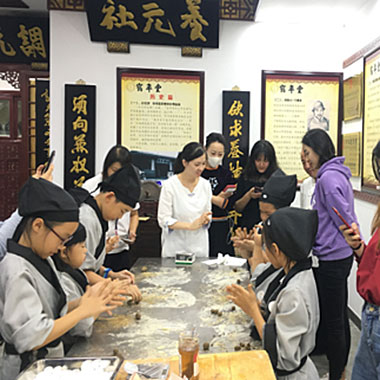
He Nian Tang's legacy is indeed significant in the context of Beijing's history. Its development and transmission are distinct from other traditional brands, as it has been passed down through four families—Ding, Cao, Wang, and Liu—each contributing to its rich heritage. Unlike many other traditional enterprises, He Nian Tang's history is not limited to a single lineage but reflects a broader legacy of expertise and innovation.
The involvement of these families, particularly Wang and Liu, who have connections to the imperial court as court physicians, has enriched He Nian Tang's health preservation culture and techniques. This integration of various family traditions and royal practices has led to a more comprehensive and refined system of medicine, blending theory, methodology, formulas, and medicinal practices. As a result, He Nian Tang offers a unique approach to traditional Chinese medicine that incorporates diverse influences and maintains historical depth.
Baita Temple Pharmacy
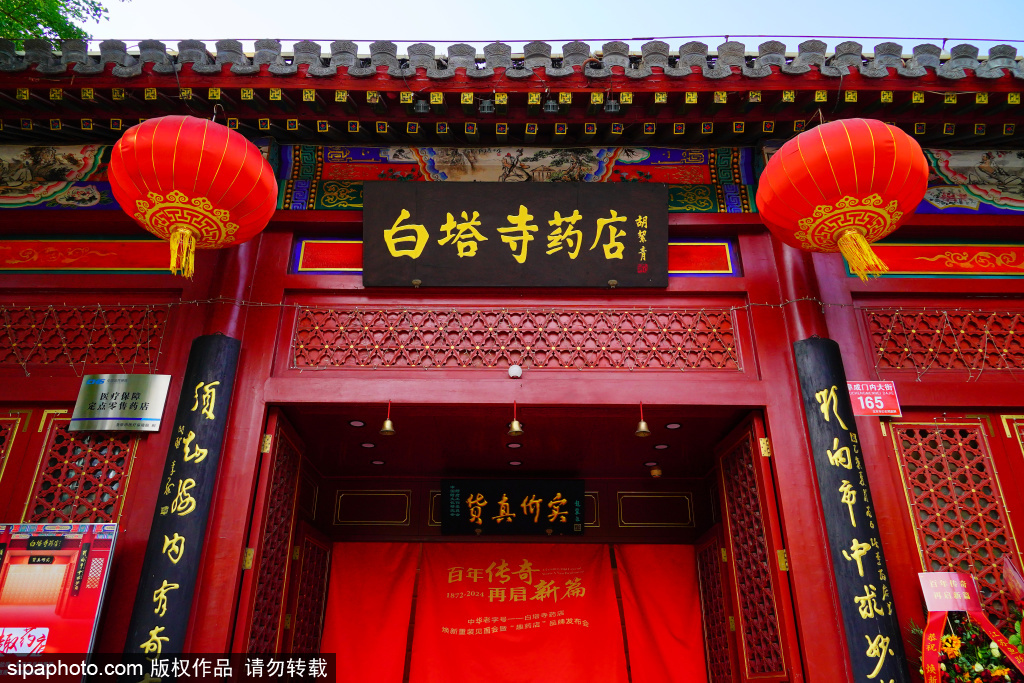
Baita Temple Pharmacy, established in the 11th year of the Qing Tongzhi era (1872 AD), has a history of over 151 years. It is a large-scale, comprehensive time-honored pharmacy with an operating area of over 1,200 square meters. The store specializes in authentic Chinese medicinal herbs, high-end ginseng and tonic products, Chinese and Western medicines, and medical devices.
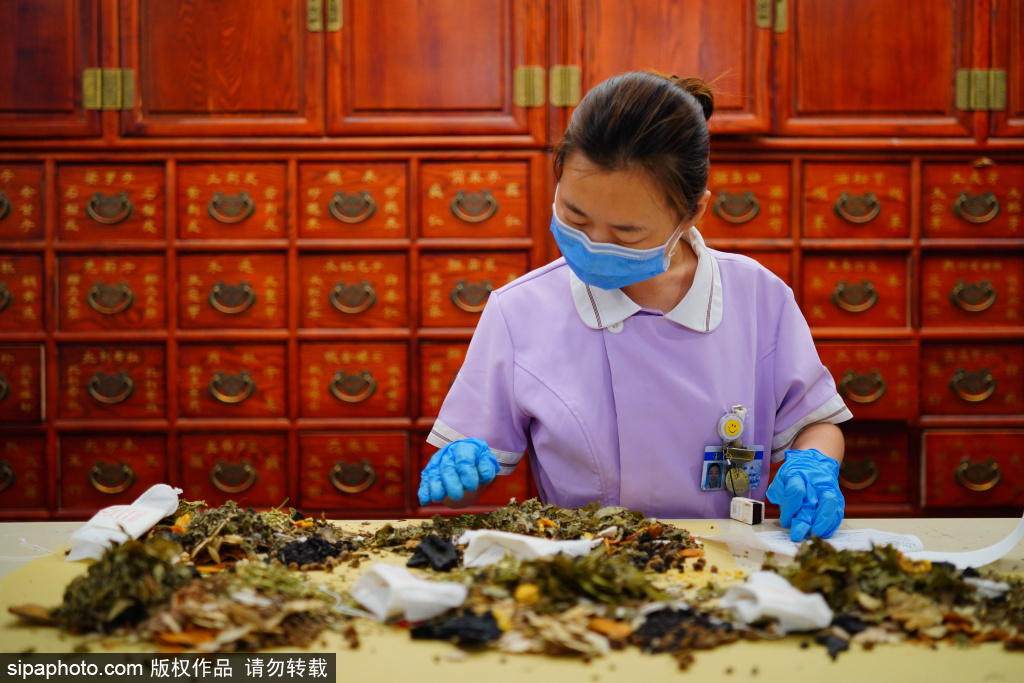
Formerly known as "Qi Hui Tang" and "Da He Tang" in old Beijing. it is named after the White Pagoda in Miaoying Temple, located at the Fucheng Men Nei area. The Baita Temple Pharmacy has long been renowned in Beijing for its long history, comprehensive variety, high quality, and excellent service. It adheres to the business philosophy of "doing business treating customers with virtue" and provides specialized services such as medicine processing, including the preparation of tea bags, honeyed pills, powder, capsules, deer antler slices, instant powdering, and brewing of nourishing decoctions, as well as medicine decoction services.
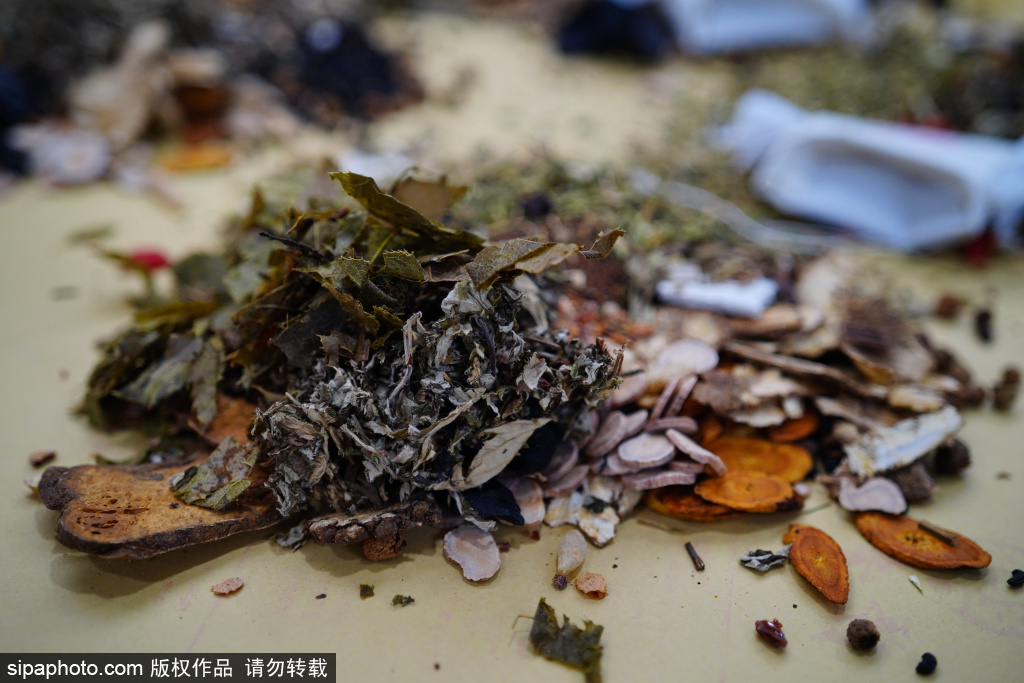
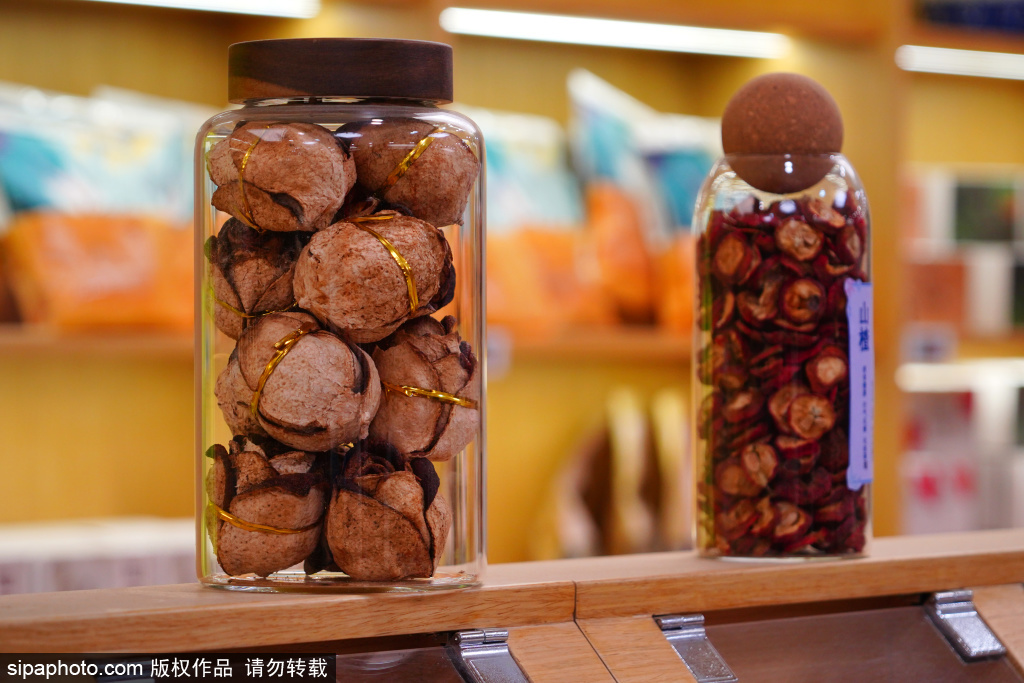
In recent years, Baita Temple Pharmacy has focused on intangible cultural heritage, integrating traditional Chinese medicine culture with intangible heritage techniques. By incorporating youthful and diverse creative elements, it attracts consumers to visit the pharmacy and experience the charm of traditional culture.
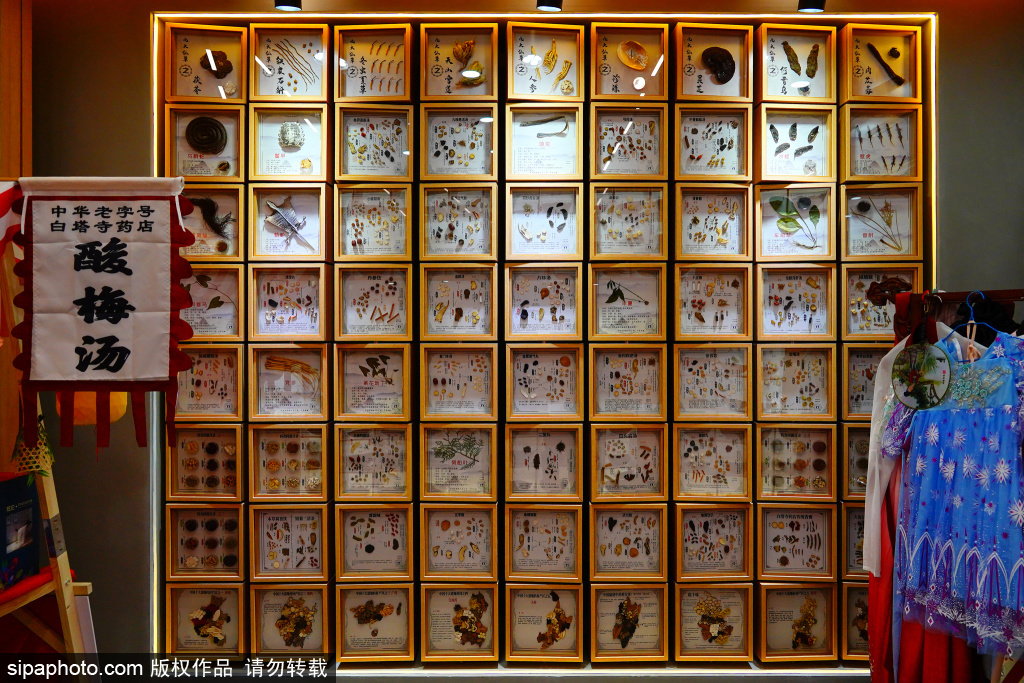
On June 30, 2023, the "Intangible Cultural Heritage Project Expert Appointment Ceremony" of the time-honored brand Baita Temple Pharmacy was officially launched. Four national-level intangible cultural heritage representatives were appointed: Hua Shulin, representative inheritor of Beijing silk figures and silk flowers; Wang Xiujun, representative inheritor of Yu's straw weaving; Xiao Zhanggui, representative inheritor of Beijing Mao Hou; and Zhang Zhongqiang, representative inheritor of Beijing clay sculpture. They will collaborate with Baita Temple Pharmacy. Through cultural exchanges and the development of creative cultural products, they aim to integrate the essence of traditional Chinese medicine into these intangible heritage culture techniques, promoting and revitalizing traditional culture.
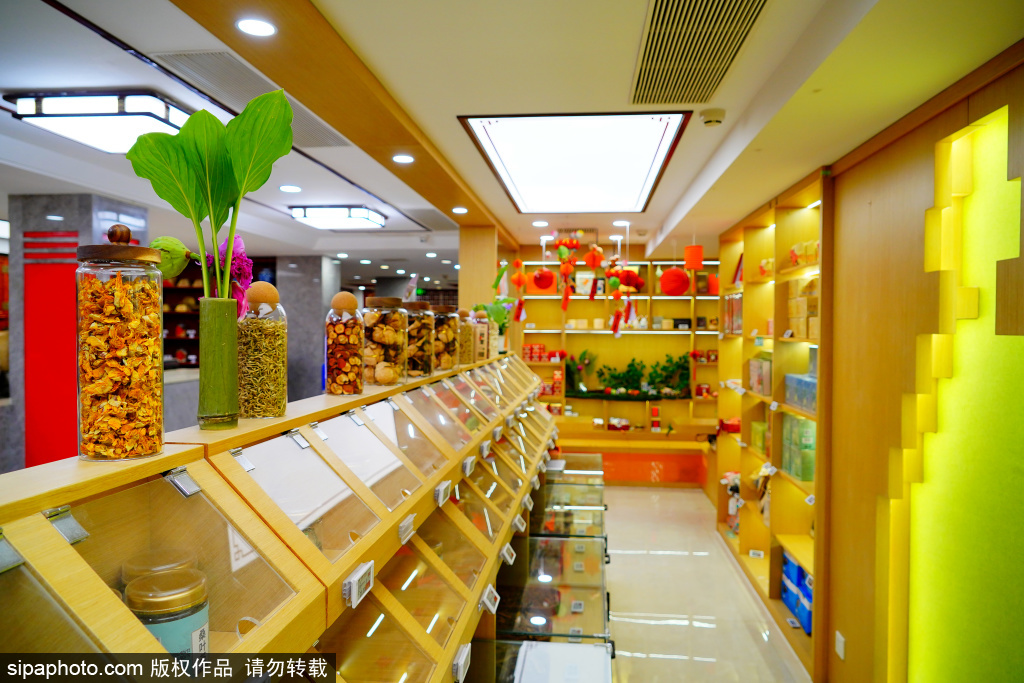
The Creative Cultural Hall of Baita Temple Pharmacy integrates culture with traditional Chinese medicine. It develops creative products that showcase traditional Chinese medicine culture in innovative ways, catering to the preferences of consumers. The collaboration with intangible cultural heritage masters has led to the creation of "Chinese Medicine Intangible Heritage Creative Products", establishing a new cultural and creative brand route of "Pharmacy + Intangible Heritage". Consumers are drawn to vivid and exquisite cultural products like rabbit deity sachets, straw woven sachets, medicinal flower silk figures, medicinal flower plush flowers, and Mao Hou. This innovative approach opens a new window for Baita Temple Medicine Store to promote traditional Chinese medicine culture.
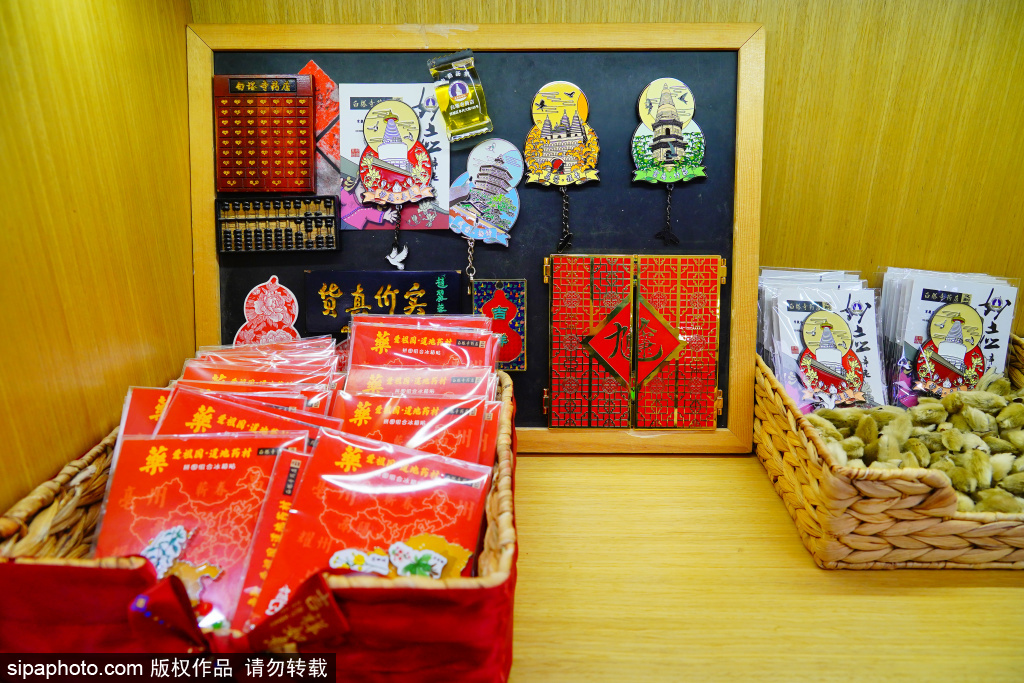
Traditional Chinese medicine is a great creation of the Chinese nation and a scientific treasure of ancient China. Intangible cultural heritage is the "living fossil" of the Chinese nation and an important symbol of national historical and cultural achievements. As Zhang Yang said, "We are fortunate to have the cooperation of four intangible cultural heritage masters, which is a recognition and support for Baita Temple Pharmacy and its Creative Cultural Hall. We hope that through this strong collaboration, we can integrate intangible heritage skills with traditional Chinese medicine, fashion, and culture, creating a more brilliant spark between Baita Temple Medicine Store and the intangible cultural heritage skills."
